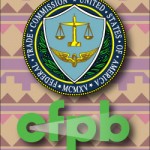The Bureau of Indian Affairs needs an attitude adjustment when it comes to freedom of information. That is because the BIA, or at least its Pacific Northwest Region, stifles the spirit of the Freedom of Information Act (FOIA), including when it comes to the agency’s trust responsibility to Indian people. Any tribal official or citizen who has sought information from the federal Indian trustee, knows that the Bureau does everything in its power to choke the flow of information to tribal government and citizens. Having had clients in search of needed information, outright disrespected by the BIA, the Bureau’s illegal practices must be brought to light – and halted by the Assistant Secretary of Indian Affairs for the Department of Interior.
Any tribal official or citizen who has sought information from the federal Indian trustee, knows that the Bureau does everything in its power to choke the flow of information to tribal government and citizens. Having had clients in search of needed information, outright disrespected by the BIA, the Bureau’s illegal practices must be brought to light – and halted by the Assistant Secretary of Indian Affairs for the Department of Interior.
During his first term in the Oval Office, President Obama issued an Executive Order, mandating that when “responding to requests under the FOIA, executive branch agencies should act promptly and in a spirit of cooperation, recognizing that such agencies are servants of the public.” 74 Fed. Reg. 4693 (Jan. 21, 2009). Yet despite this order that the BIA cooperate in service to the public, consider two recent examples of how uncooperatively the Bureau’s Pacific Northwest Regional Office treated tribal parties seeking information critical to them.
Last year a tribal enterprise requested information about Bureau commercial regulatory practices regarding Tribal trust resources. That information should have been produced without a FOIA request, because the United States’ fiduciary responsibility affords tribal trust beneficiaries “government documents prepared in aid of trust administration,” and “the requirements of FOIA serve different policies and interests” than does the execution of that duty. Osage Nation v. U.S., 66 Fed.Cl. 244 (Fed. Cl. 2005).
Even so, the Bureau required a FOIA request, as it typically does. Then, after the tribal entity wrote the BIA pursuant to FOIA, the Regional Director (or his Solicitor) glibly replied, and I quote:
The law is clear that the FOIA is not meant to have federal agencies become the research arms of other entities.
What gall, especially because the law could not be more clear: FOIA is in fact designed to cause federal agencies to be research arms – of the taxpaying American public, including Indians.
More recently members of a tribal council requested from the BIA all documents regarding a Secretarial election. In order to receive 1,000 pages of information, the BIA assessed them fees of over $10,000 – an astonishing $10 a page. What Indian or Tribe has $10,000 lying around, especially for purchase of their own federal documents?
After the Councilpersons requested a fee waiver, explaining that they needed the election records to for fundamental governmental purposes, the Regional Director (or his Solicitor) deemed the request one of “commercial interest” and reasoned:
'This request concerns individuals that would derive benefits from being enrolled in a specific tribal government and disclosure provides specific information on how individual tribal members voted. As such, your commercial interest in these disclosures is your primary interest and clearly outweighs any public interest’ in disclosure.
Again, what gall, to insult tribal citizens by declaring their governmental concerns a matter of monetary interest. Imagine the BIA offering the same explanation to a U.S. Senator asking for governmental documents.
It is time for Assistant Secretary Kevin Washburn to change the attitude of the BIA’s career employees regarding disclosure of information to the tribal public. This spring, Secretary Washburn remarked that the recent Cobell settlement allows the United States and Indian Country to “hit the reset button” on the federal Indian trust relationship. The reset button must also be hit as to Interior’s role as trustee of Indian records and information.
Indeed, “[t]he common law recognizes an obligation on the part of the trustee to provide full and accurate information to the beneficiary on his management of the trust.” Martin v. Valley Nat'l Bank of Arizona, 140 F.R.D. 291, 322 (S.D.N.Y. 1991); see also Cobell v. Norton, 225 F.R.D. 41, 45 (D.D.C. 2004). The two anecdotes I share suggest that Interior has not sufficiently learned its lesson from Cobell about tribal access to trust-related information.
In all, when responding to requests under the FOIA, the BIA should start acting promptly and in a spirit of cooperation, recognizing that the agency is a servant of the American Indian public. Perhaps then freedom of federal Indian information will reign.
Gabriel S. Galanda is a Round Valley Indian Tribal member and a partner with the Seattle office of Galanda Broadman, PLLC. Gabe has sued the Department of the Interior and BIA for freedom of federal Indian information. He can be reached at gabe@galandabroadman.com.












 Any tribal official or citizen who has sought information from the federal Indian trustee, knows that the Bureau does everything in its power to choke the flow of information to tribal government and citizens. Having had clients in search of needed information, outright disrespected by the BIA, the Bureau’s illegal practices must be brought to light – and halted by the Assistant Secretary of Indian Affairs for the Department of Interior.
Any tribal official or citizen who has sought information from the federal Indian trustee, knows that the Bureau does everything in its power to choke the flow of information to tribal government and citizens. Having had clients in search of needed information, outright disrespected by the BIA, the Bureau’s illegal practices must be brought to light – and halted by the Assistant Secretary of Indian Affairs for the Department of Interior.




